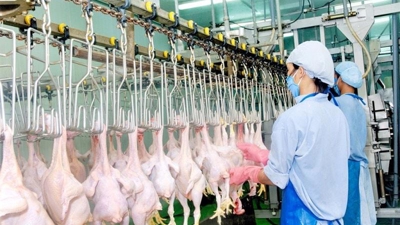Vietnam leverages open market opportunities to boost exports to Malaysia
According to the Vietnam Trade Office in Malaysia, Vietnam’s exports to Malaysia in the first four months of 2025 showed impressive growth.

The Vietnam Trade Office in Malaysia has highlighted numerous opportunities for Vietnamese exporters to Malaysia, which boasts strong purchasing power, diverse consumer demand, and cultural similarities with Vietnam.
Malaysia’s high trade openness and its participation in various regional trade liberalization agreements further facilitate Vietnamese exports to the country.
Despite government policies supporting domestic businesses and farmers, Malaysia faces supply shortages of essential food items such as rice and seafood, creating demand for imported products.
However, Vietnamese exporters also face notable challenges. Malaysia’s open market attracts fierce competition from other exporting countries, particularly China, Thailand, and Indonesia.
Additionally, food products require Halal certification, which is not issued by Vietnamese state agencies but must be recognized by authorities in selected Muslim-majority countries.
Other obstacles include language barriers, cultural differences, and concerns about trade fraud, which have deterred some Vietnamese businesses from actively pursuing opportunities in Malaysia.
According to the Vietnam Trade Office in Malaysia, Vietnam’s exports to Malaysia in the first four months of 2025 showed impressive growth.
Computers, electronic products, and components led the way, accounting for 14.9% of the total, marking a 55.3% increase year-on-year.
Coffee exports surged by 63.7%, though primarily in the form of raw beans used as input for Malaysia’s coffee industry rather than branded Vietnamese coffee products. Pepper exports rose by 116.3%, while rubber exports skyrocketed nearly five-fold to 447.8%. However, both categories still represent a relatively modest 1.4% of total exports.
With the right strategies and market engagement, Vietnamese businesses have the potential to expand their footprint in Malaysia, leveraging its demand while navigating competition and regulatory challenges.







